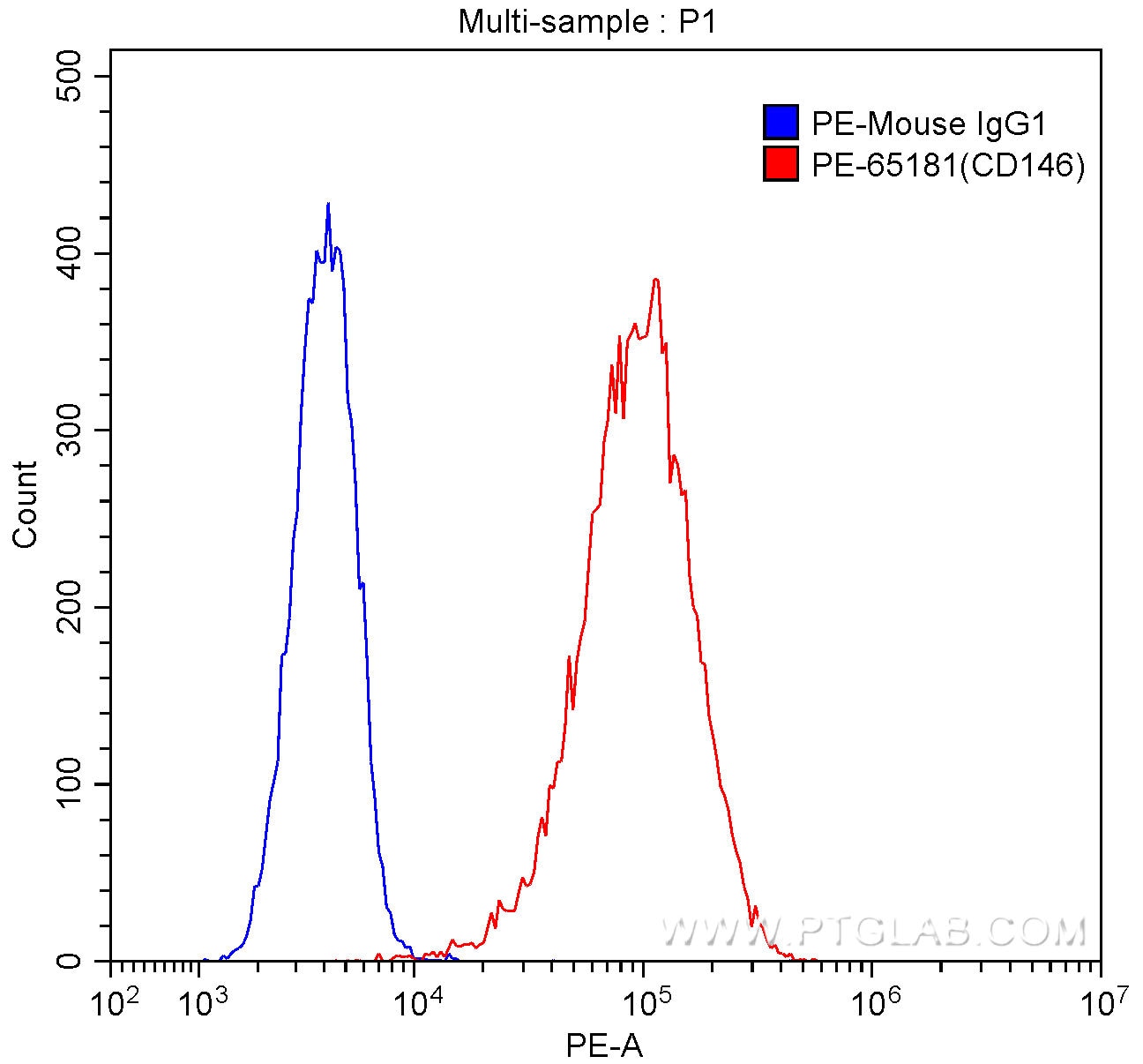CD146 Monoklonaler Antikörper
CD146 Monoklonal Antikörper für FC
Wirt / Isotyp
Maus / Mouse IgG1
Getestete Reaktivität
human, Hund, Kaninchen, Maus
Anwendung
FC
Konjugation
PE Fluorescent Dye
CloneNo.
P1H12
Kat-Nr. : PE-65181
Synonyme
Galerie der Validierungsdaten
Geprüfte Anwendungen
| Erfolgreiche Detektion in FC | HeLa-Zellen |
Empfohlene Verdünnung
| Anwendung | Verdünnung |
|---|---|
| This reagent has been pre-titrated and tested for flow cytometric analysis. The suggested use of this reagent is 10 µl per 10^6 cells in a 100 µl suspension or 10 µl per 100 µl of whole blood. | |
| Sample-dependent, check data in validation data gallery | |
Veröffentlichte Anwendungen
| FC | See 1 publications below |
Produktinformation
PE-65181 bindet in FC CD146 und zeigt Reaktivität mit human, Hund, Kaninchen, Maus
| Getestete Reaktivität | human, Hund, Kaninchen, Maus |
| In Publikationen genannte Reaktivität | human |
| Wirt / Isotyp | Maus / Mouse IgG1 |
| Klonalität | Monoklonal |
| Typ | Antikörper |
| Immunogen | Gezüchtete humane Nabelschnurzellen |
| Vollständiger Name | melanoma cell adhesion molecule |
| Berechnetes Molekulargewicht | 646 aa, 72 kDa |
| GenBank-Zugangsnummer | BC056418 |
| Gene symbol | MCAM |
| Gene ID (NCBI) | 4162 |
| Konjugation | PE Fluorescent Dye |
| Excitation/Emission maxima wavelengths | 496 nm, 565 nm / 578 nm |
| Form | Liquid |
| Reinigungsmethode | Der gereinigte Antikörper ist mit R-Phycoerythrin (PE) unter optimalen Bedingungen konjugiert. Das Konjugat wird mit Größenausschluss-Chromatographie gereinigt. |
| Lagerungspuffer | PBS mit 0,1% Natriumazid. |
| Lagerungsbedingungen | Bei 2-8°C lagern. Vor Licht schützen. 20ul Größen enthalten 0,1% BSA. |
Protokolle
| Produktspezifische Protokolle | |
|---|---|
| FC protocol for PE CD146 antibody PE-65181 | Protokoll herunterladen |
| Standard-Protokolle | |
|---|---|
| Klicken Sie hier, um unsere Standardprotokolle anzuzeigen |
Publikationen
| Species | Application | Title |
|---|---|---|
J Dent Sci N-acetylcysteine promotes cyclic mechanical stress-induced osteogenic differentiation of periodontal ligament stem cells by down-regulating Nrf2 expression. |


